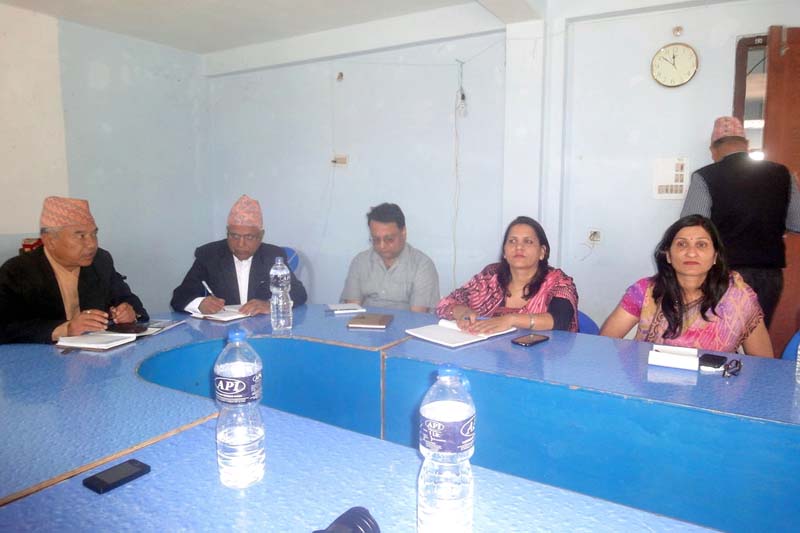Conflict victims question TRC’s efficacy
Kathmandu, February 6
Conflict victims have cast doubt on efficacy of the Truth and Reconciliation Commission and the Commission of Investigation on Enforced Disappeared Persons to resolve insurgency-era rights violations cases, even if their terms are extended.
They say transitional justice mechanisms have to be free from internal disputes and should take all stakeholders into confidence if they were keen on accomplishing their tasks.
Five members of TRC — Chairperson Surya Kiran Gurung and members Madhabi Bhatta, Sri Krishna Subedi, Leela Udasi and Manchala Jha — were mainly picked because of their proximity to the major political parties. During meetings their conflicting political views frequently lead to disputes.
Fresh rift surfaced last week between Gurung and Bhatta on Subedi’s take on the content that should be included in the proposal to seek term extension.
“It is embarrassing that the body that is supposed to settle Maoist insurgency-era pending cases itself is engaged in disputes,” Suman Adhikari, chairperson of Conflict Victims’ Common Platform, told THT.
Adhikari said both the TRC and the CIEDP should pressure the government for prompt allocation of necessary human, technical and financial resources, besides formulating laws to help them function properly. He added that merely seeking term extension was not enough.
Victims and rights defenders, meanwhile, raised questions on these bodies’ letters to the government seeking one year term extension.
The TRC and the CIEDP were set up on 10 February 2015, with two years’ mandate to investigate the Maoist insurgency-era rights violation cases and recommend necessary action against the perpetrators.
In two years, these bodies received thousands of complaints from the victims, but failed to investigate them.
Chairman of the National Society for Conflict Victims and Nepali Congress leader Kul Bahadur Gurung told THT that the transitional justice bodies had failed to perform, as they were mere puppets of political parties. Gurung’s property in Dhanabari village of Ilam district was seized by Maoist cadres even after the 12-point understanding was reached between the Maoists and the then seven-party alliance, in New Delhi, in November 2005.
“The TRC and the CIEDP have to be free of political influence and have to perform according to domestic laws and international practices,” Gurung added. “If political parties continue to exercise control over them, they will not be able to perform even if their terms are extended.”
In a recent interview to THT, Mohna Ansari, spokesperson for the National Human Rights Commission, said NHRC was in favour of extending terms of TRC and CIEDP. She added that internal disputes in the TRC, coupled with the government’s reluctance to enact necessary laws and provide resources had hampered the functioning of the transitional justice bodies.






